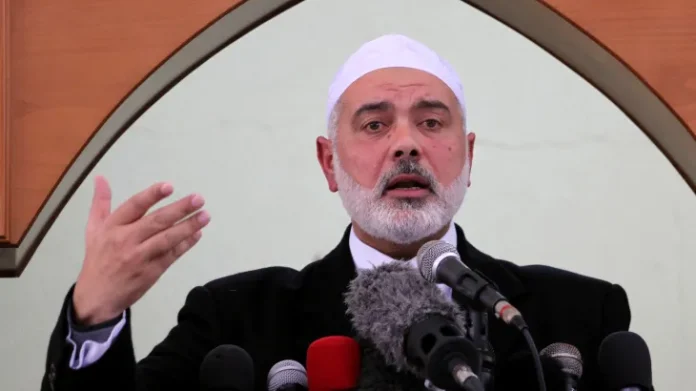On Wednesday, conflicting reports concerning the killing of Hamas political chief Ismail Haniyeh in Tehran fueled the already volatile atmosphere in the Middle East.
The assassination occurred after Haniyeh attended the inauguration ceremony of Iran’s new President, Masoud Pezeshkian, marking his first public appearance with the new leader. Reports indicate that the incident took place at Haniyeh’s residence in a veterans’ housing area north of Tehran.
Israeli journalist Yoni Ben Menachem reported that the assassination was executed using a missile launched from a submarine. Israeli media suggested that this operation might have involved a mobile missile from an Israeli submarine, potentially guided by the US Navy. This missile strike reportedly resulted in the deaths of Haniyeh and his associate, Waseem Abu Shaban.
In contrast, Al-Mayadeen, a news outlet affiliated with Hezbollah, claimed that a missile fired from abroad was used in the attack. An unnamed Iranian official described this as an “act of aggression against Iran” that “necessitates a decisive response.”
In response, Iran’s Supreme Leader Ayatollah Ali Khamenei has vowed “harsh punishment” for Israel. Khamenei expressed condolences for Haniyeh, calling him a “courageous leader,” and declared that Israel’s actions would lead to severe repercussions. He emphasized Iran’s obligation to “seek revenge for Haniyeh’s death,” which occurred on Iranian soil.
The Iranian Revolutionary Guard Corps (IRGC) also pledged a “severe and painful response” to what it called a crime by the “Zionist regime,” and President Pezeshkian asserted that Iran would defend its territorial integrity and make the aggressors “regret their actions.”
While no group has officially claimed responsibility, suspicion has swiftly fallen on Israel, which had previously vowed to target Haniyeh and other Hamas leaders in retaliation for the group’s October 7 attack on Israeli settlements in Gaza.
According to a report, Netanyahu was expected to meet for consultations with security officials at 4 p.m. (1300 GMT).
U.S. Secretary of State Antony Blinken, at an event in Singapore, sidestepped a question on Haniyeh’s killing, saying a ceasefire deal in Gaza was key to avoiding wider regional escalation.
“I’m not going to speculate on what impact any one event might have on that, I’ve learned over many years.”
He told Channel News Asia that the U.S. had neither been aware of nor involved in the killing.
The assassination, which took place less than 24 hours after Israel claimed to have killed the Hezbollah commander it said was behind a deadly strike in the Israeli-occupied Golan Heights, appears to set back chances of any imminent ceasefire agreement in the 10-month-old war Gaza.
“This assassination by the Israeli occupation of Brother Haniyeh is a grave escalation that aims to break the will of Hamas,” senior Hamas official Sami Abu Zuhri told Reuters.
He said Hamas, the Palestinian Islamist group that ruled Gaza prior to the Israeli assault, would continue the path it was following.
Israeli occupation Minister Yoav Gallant said Israel was not trying to escalate the war but was prepared for all scenarios. Visiting an air defence battery, he praised the forces who carried out the attack on the Hezbollah commander in Beirut.













